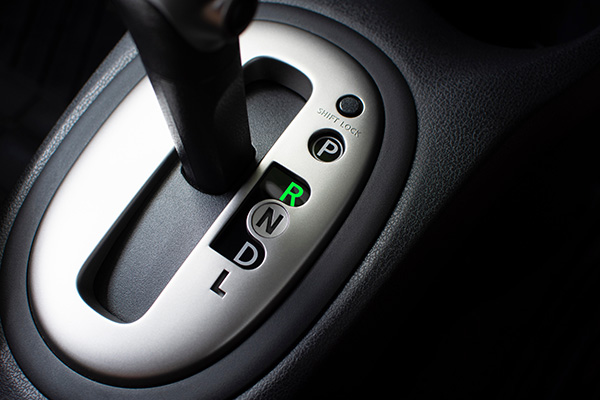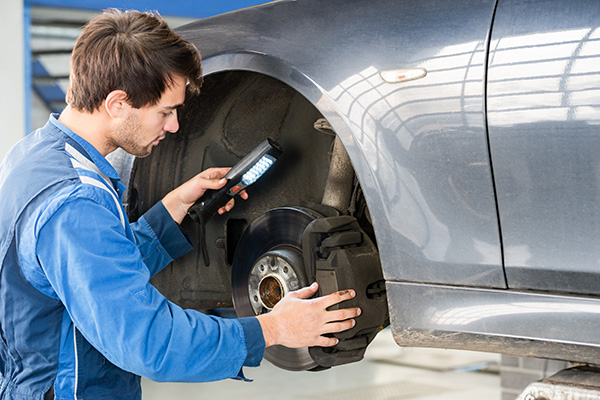Posted on 4/28/2025

If it feels like you're filling up your gas tank more often than usual, your car might be using more fuel than it should. Poor fuel economy can be frustrating—and expensive—but it’s often a sign that something under the hood needs attention. Thankfully, many of the common causes are simple to fix once identified. Here are eight possible reasons your MPG is dropping and what you can do about it. 1. Incorrect Tire Pressure When your tires are underinflated, they create more rolling resistance, which forces your engine to work harder and burn more fuel. Just a few PSI below the recommended level can lower your fuel efficiency. Check your tire pressure monthly and inflate to the levels listed on the inside of your driver’s door. 2. Dirty Air Filter Your engine needs clean air to operate efficiently. A clogged air filter restricts airflow, which throws off the air-fuel mixture and forces your engine to work harder. Replacing ... read more
Posted on 3/28/2025

Do you hear a loud “clunk” or feel a jolt when you shift your vehicle into reverse? It might happen once in a while or every single time—but either way, it’s unsettling. A car shouldn't make a loud noise or jerk every time you go into reverse. These symptoms usually point to a problem somewhere in the drivetrain, and while it might not mean your transmission is on its last leg, it’s definitely not something to ignore. That “clunk” is your vehicle’s way of telling you something isn’t engaging properly. If left unchecked, a minor issue can lead to wear and tear on expensive components like the transmission or driveshaft. What’s Happening When You Shift Into Reverse When you move the gear selector into reverse, your transmission activates a specific gearset designed to rotate the wheels backward. At the same time, the engine’s torque is redirected, and power flows through a series of joints and mount ... read more
Posted on 2/28/2025

Owning an electric vehicle (EV) comes with plenty of advantages, from lower fuel costs to reduced emissions. However, EV ownership requires a different approach to maintenance, charging, and daily driving habits compared to traditional gas-powered cars. Understanding the best practices can help you maximize your EV’s efficiency and lifespan while avoiding common pitfalls. Do: Follow a Proper Charging Routine Charging your EV correctly is essential for maintaining battery health. While fast charging is convenient, relying on it too often can degrade the battery over time. It’s best to use a Level 2 home charger for daily charging and reserve fast charging for road trips or emergency situations. Keeping your battery between 20% and 80% charge can also help extend its lifespan. Don’t: Let Your Battery Drain Completely Allowing your battery to drop to 0% charge frequently can reduce its long-term capacity. EV batteries perform best wh ... read more
Posted on 1/31/2025

Hearing strange noises when you hit the brakes? That’s never a good sign. Whether it’s a squeak, a grind, or a loud screech, any unusual sound coming from your brakes should never be ignored. Your braking system is one of the most important safety features of your car, and when it starts making noise, it’s trying to tell you something. Let’s find out what different brake noises mean, why they happen, and when you should take action before minor issues turn into costly repairs. Squeaking or Squealing Brakes One of the most common brake noises is a high-pitched squeal. In many cases, this sound is caused by brake pad wear indicators—small metal tabs designed to alert you when it’s time for a replacement. If you hear a squealing sound consistently, it likely means your brake pads are wearing thin and need to be changed soon. However, sometimes brakes squeak due to temporary factors like moisture or dust buildup. If the noise happens ... read more
Posted on 12/21/2024

Driving in cold weather is no joke. Whether it's icy roads, slushy highways, or snow-packed side streets, winter conditions put your vehicle—and your driving skills—to the test. That’s where technology steps in to make life safer. Features like Electronic Stability Program (ESP), Anti-lock Braking System (ABS), and traction control aren't just buzzwords—they're game changers for navigating winter roads. But what do these systems really do, and why are they essential for your vehicle this season? Let’s break it down. How Does ESP Improve Safety ESP, or Electronic Stability Program, is your guardian angel during slippery moments. It works by keeping your vehicle on course when you’re at risk of skidding or losing control. For instance, if you’re turning a corner on an icy road and your SUV starts to fishtail, ESP automatically adjusts power to the wheels to help you regain control. This feature works seamlessly wit ... read more